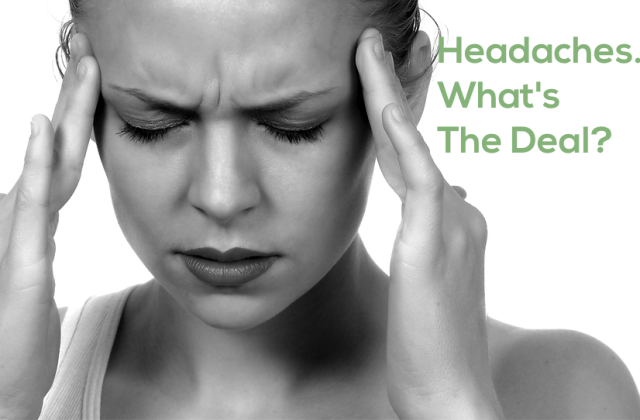If you are one of the many who take the New Year to focus on…
Headaches…What’s the deal?

Most people have experienced a painful headache at some point in their lives. Some get them regularly and others just every once in a while, but no matter how frequent (or infrequent) a headache is, we can all agree that they are no fun. Many experience weakened mental clarity, feel spacey and want to shut down. We asked neurologist, Dr. Michael Song about what a headache really is and what you can do to potentially prevent them. .
A headache is medically known as cephalalgia, or, a continuous pain in the head. The pain can be anywhere in the head or neck region, as the brain has no pain receptors, headaches are technically not felt on the brain. The actual pain you feel is caused by the disturbances of the pain sensitive structures around the brain. The American Academy of Neurology says there are four types of headaches:
- Vascular headaches- thought to be caused by blood vessel swelling and hyperemia (increase of blood flow). The most common type being a migraine. Migraine sufferers typically have severe pain on one or both sides of the head, visual disturbance, and/or upset stomach.
- Muscle contraction (tension) headaches- also known as myogenic headaches, are caused by the tightening/tensing of facial and neck muscles, these account for nearly 90% of all headaches.
- Traction headaches- these are usually caused by pulling or stretching pain-sensitive parts of the head, as may occur during eyestrain and when eye muscles are tensed.
- Inflammatory headaches- these are typically symptoms of other disorders, including sinus infection, meningitis or stroke.
What actually causes these headaches you ask? These are factors thought to contribute to them:
- Stress
- Depression
- Anxiety
- Bad Posture
- Staying in one position for a long time
- Working in an awkward position for a long time
- Clenching one’s jaw
- Caffeine (ingesting large amounts)
- Food Allergies
By improving your lifestyle with healthy eating, getting enough rest, drinking plenty of water, and exercising regularly, you can improve the occurrence of headaches. Unfortunately there is no miracle cure or hard and fast steps you can take to prevent them. If you have recurring bad headaches or migraines, seeing your general practitioner to rule out any other underlying causes is always a good idea.



